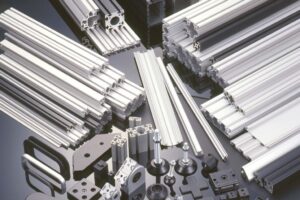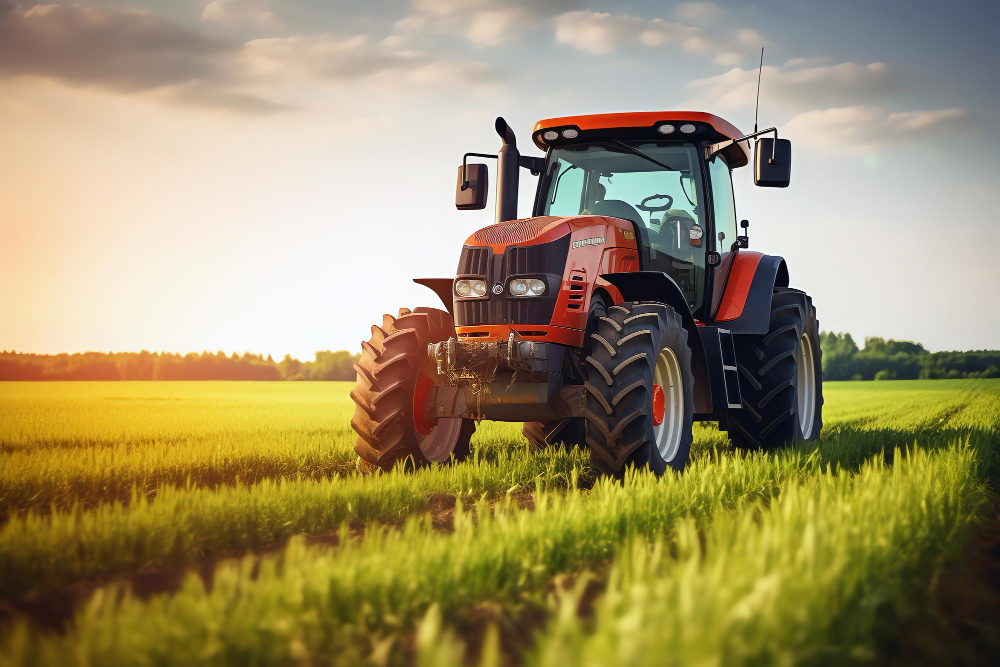With its responsibility to environmental conservation whilst also responding to the need for increased productivity due to population growth, sustainable farming has come to the forefront in agriculture. This quest takes a massive leap with electric and hybrid tractors. These groundbreaking machines will transform farming practices by reducing greenhouse gas emissions, decreasing fuel costs and reducing noise pollution. With climate change as the leading global concern, the movement toward electric and hybrid tractors would be a significant step forward in the direction of sustainable agriculture.
The diesel tractor has long dominated the farming landscape, helping to drive vast surges in agricultural productivity. But with an environmental price tag. CO2, NOx, and particulate matter are released by diesel engines, leading to air pollution and climate change. Electric and hybrid tractors, on the other hand, are a cleaner solution. Battery bears little to no emissions, while hybrid combines electric and diesel power, reducing emissions by a great deal. So this drop in emissions is important to reduce the ecological footprint of farming.
Electric tractors run on large-capacity batteries, which are charged with renewable energy from solar or wind power. This mode of functioning makes them both eco-friendly and an economically viable solution in the long run. Agriculture accounts for a significant amount of fuel costs, so farmers can potentially save on these. Plus, electric tractors are, in general, more cost-effective to maintain than their diesel-fueled counterparts. Electric motors generally have fewer moving parts than internal combustion engines, leading to less wear and tear and fewer breakdowns.
Hybrid tractors, in contrast, feature a combination of electric and diesel power. These tractors have switchable electric and diesel systems, or both can be used together, which can optimize fuel economy and reduce emissions. Special case: hybrid systems Hybrid systems present a great benefit for tasks where power demand can vary significantly. If the tractor is only performing light work, for example, then it can run on electric power only, saving diesel fuel. However, when additional power is required for, say, plowing or heavy lifting, the diesel engine will engage and provide a boost. These features make hybrid tractors a mutually adaptable and viable option for contemporary agriculture.
Les tracteurs électriques ou hybrides ont un grand avantage: ils explode la pollution sonore. Conventional tractors are incredibly noisy, which can disturb farmers and nearby residents. Electric tractors operate nearly silently, making the working environment more comfortable and minimizing the impact on surrounding areas. This is especially helpful for farms near residential buildings or places where noise mitigation is enforced.
It is easy to enumerate such advantages, but at the same time, the transition to electric or hybrid tractors will have to face numerous obstacles. The upfront cost is one of the main obstacles. Prices Electric and hybrid tractors tend to cost more than traditional diesel models. However, this initial cost can be negated through long-term savings in fuel and maintenance. Moreover, the cost of these revolutionary tractors would come down with technological improvements and increased production.
The availability of charging infrastructure is also a challenge. A widespread network of easily accessible charging stations is crucial for electric tractors to enter the mainstream. To tackle this, both the government and private firms are making efforts to help evolve charging infrastructure to accommodate this evolution with EVs in agriculture.
A lot of this depends on battery technology too. Agricultural batteries will have to deliver enough power and last long enough to be practical. Newer battery technology, including more efficient and long-lasting batteries, is really the key to the widespread use of electric tractors. Battery performance is vital in the electric era of farming equipment, which is why researchers and manufacturers are constantly working hard to improve batteries.
The environmental impact of electric and hybrid tractors goes beyond reduced emissions. These tractors can also assist farmers in developing more sustainable farming practices. Electric Motors (like what Ifarm uses for planting, fertilizing, and harvesting): The precision control offered by electric motors allows for more precise planting, fertilizing, and harvesting, which reduces resource wastage and increases crop yields. The charging of electric tractors with renewable energy systems is also in line with a broader movement towards sustainable energy.
For all we know, this could be the future of sustainable farming with electric and hybrid tractors. These tractors provide clear benefits over diesel models, including reduced emissions, reduced fuel and maintenance costs, and reduced noise pollution. Despite this, hurdles to broad adoption remain, but continued innovation in tech and infrastructure is clearing a path to a more sustainable farming sector. With more farmers and stakeholders adopting these high-end technologies, electric and hybrid tractors will fortify their position as the future of agriculture.












